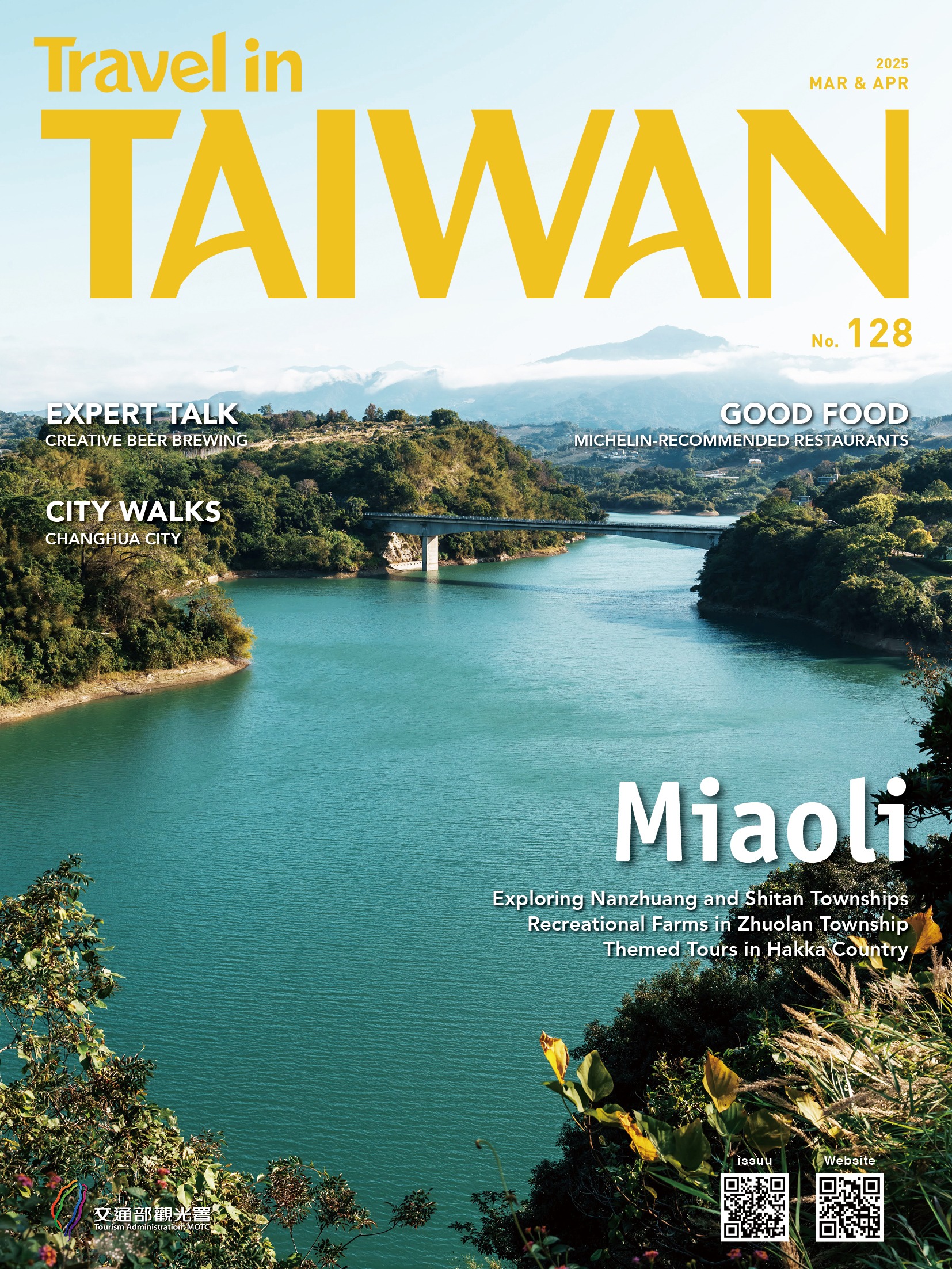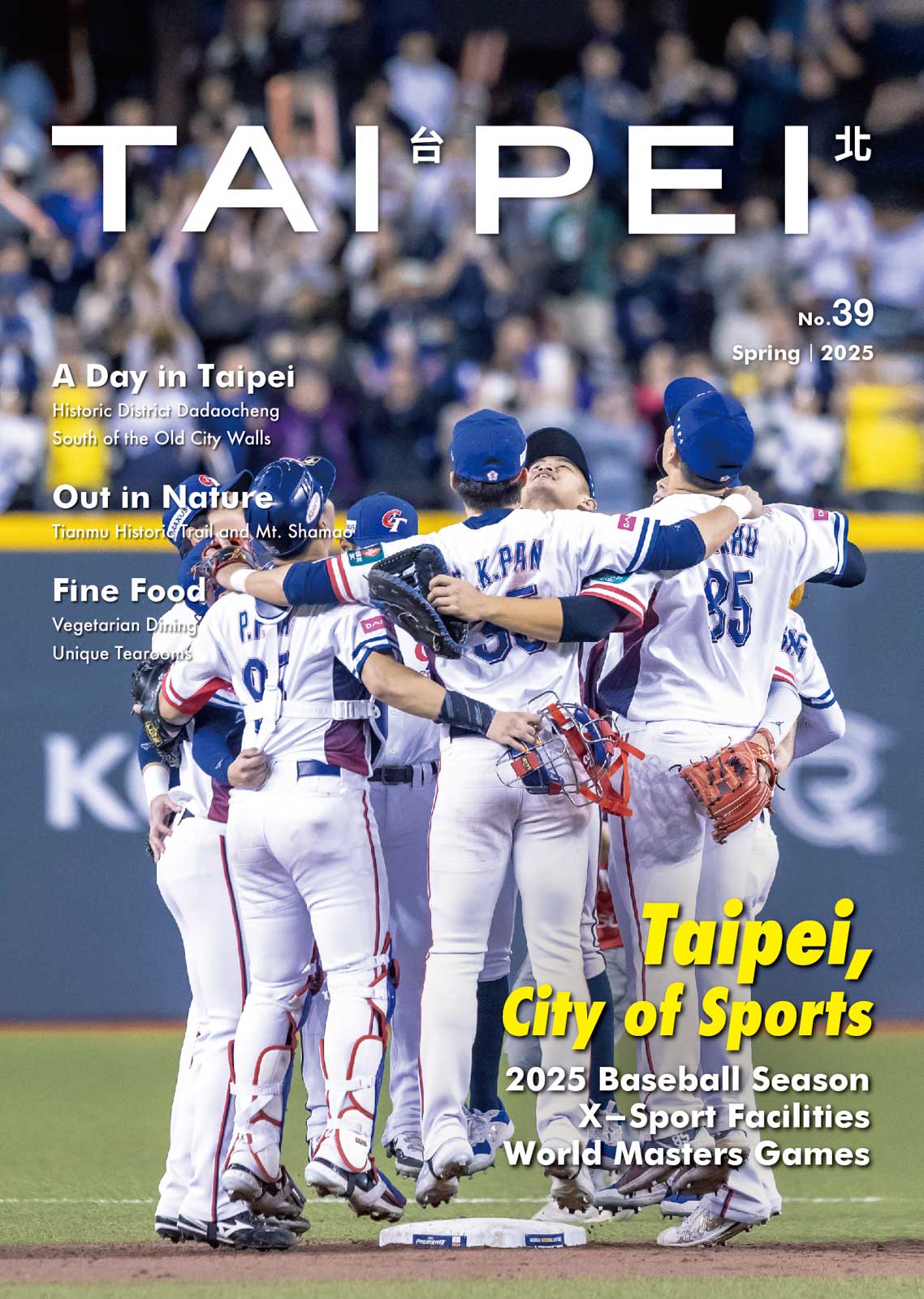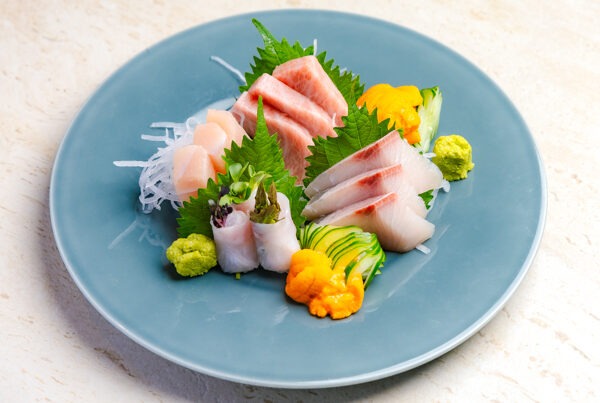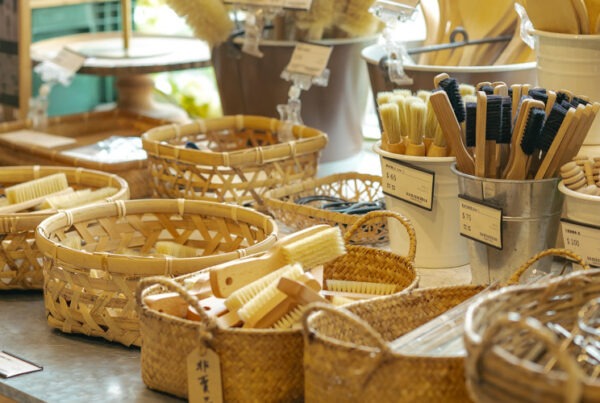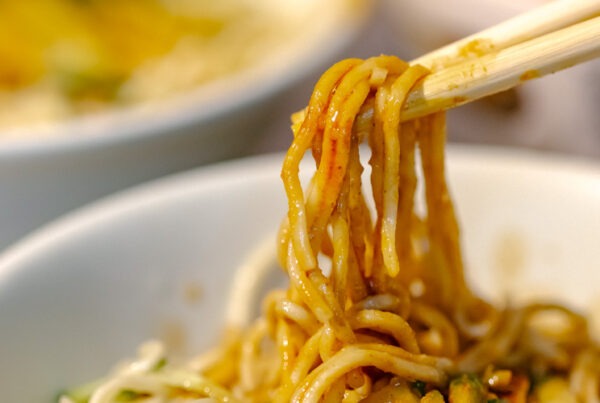A Classroom Where Taiwanese Cuisine Comes Alive
TEXT | HAN CHEUNG
PHOTOS | VISION, COOKINN TAIWAN
Hands-on experiences are a wonderful way to get an in-depth look into your topic of interest, whether it be food, arts and crafts, sports, or cultural activities. Taiwan offers a wide range of DIY possibilities, giving curious visitors a chance to interact with local experts and pick their brains.
The classroom at Taipei’s Cookinn Taiwan is filled with laughter as students try their hardest to smash a cucumber with a knife on a cutting board. “Think of someone who makes you angry,” exclaims the animated instructor. They all have a sliced end of a cucumber stuck on their foreheads, something meant in other circumstances to be soothing and beneficial to the skin.

They will later marinate the cucumber with garlic, chili, soy sauce, sesame oil, and sugar to create a classic Taiwanese side dish, which will be paired with other classic Taiwanese culinary treats: xiaolongbao (soup dumplings), braised beef noodle soup, and boba milk tea. Everything is crafted from scratch, including the dumpling skins. The instructor shares tidbits of local history and culture, such as how eating noodles became popular in Taiwan despite the island not producing wheat, and the students’ eyes widen as she explains that the term “boba” originally referred to a large-breasted woman.
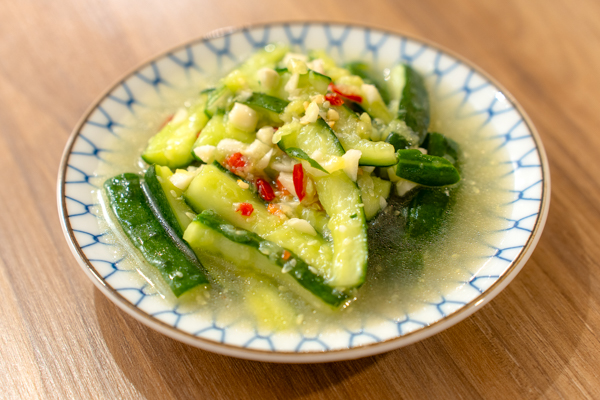
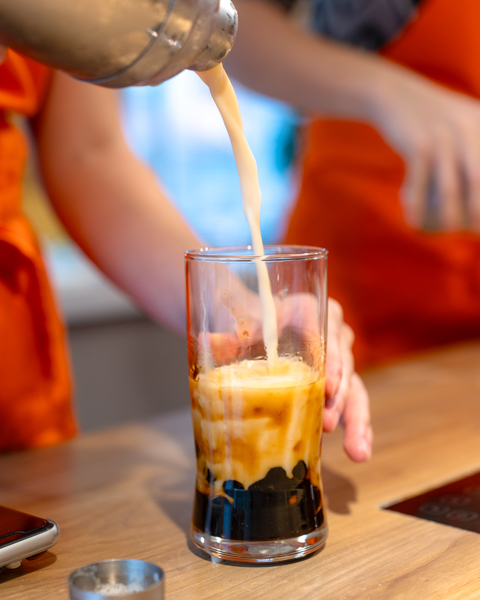
This three-hour class, which is open to those of all skill levels, is one of the school’s more popular selections. The other bestseller is the Taiwanese street food combo, featuring lu rou fan (braised pork rice), guabao (pork belly buns), and boba tea, in which the buns and tapioca balls are handmade. Other offerings include Taiwanese traditional breakfast, pastries, night-market snacks, and seasonal festive specialties such as mooncakes and zongzi (sticky-rice dumplings). Instruction is in English or Japanese, and there are also digital options for Korean and Thai speakers. After each class, participants receive memento photos and full recipes.

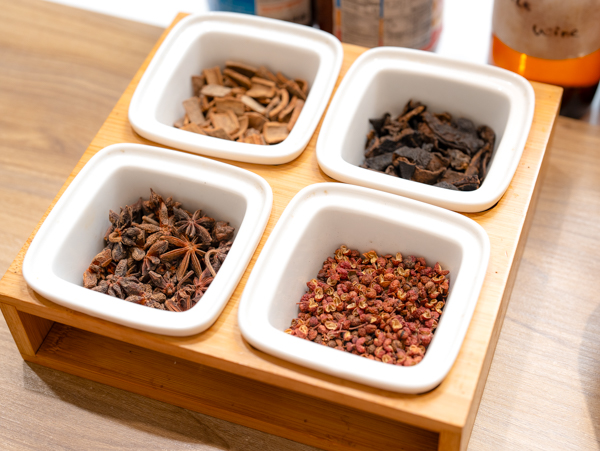
School founder Chelsea Tsai hopes that visitors can recreate the dishes they have learned once they’re back home, so she has simplified some of the recipes and only included ingredients that are accessible outside of Taiwan. For example, beef noodles can be made with a variety of spices, but Tsai has narrowed it to four essentials: orange peel, star anise, cinnamon, and peppercorn.
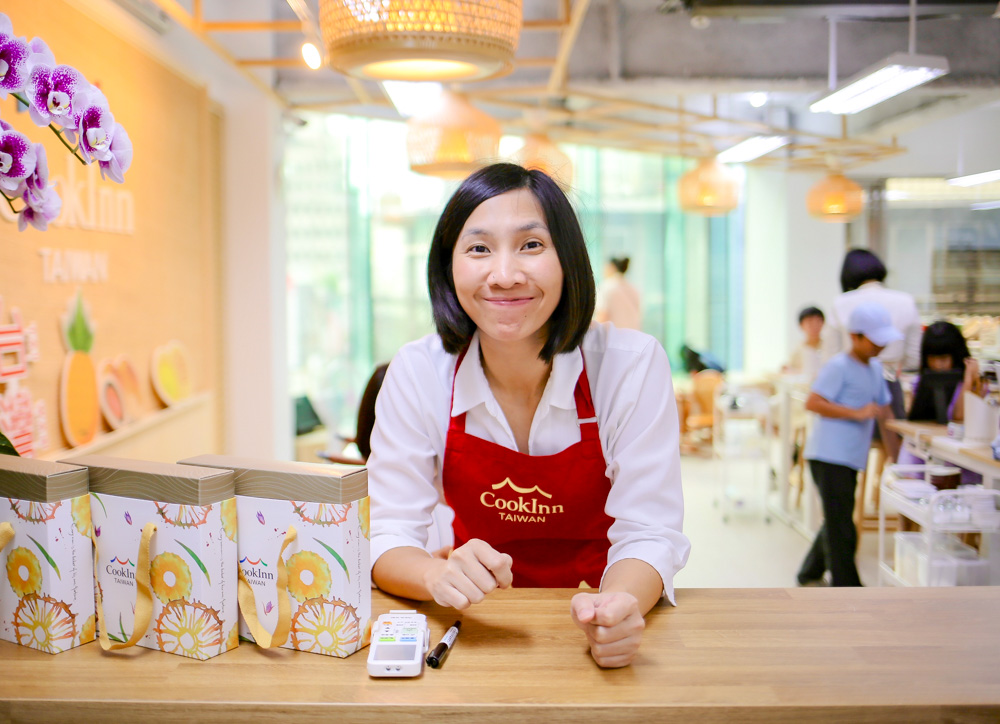
To Tsai, the interactions during class are crucial to the experience. “As a tourist traveling abroad, there aren’t many chances to exchange ideas with locals about their cuisine,” she says. “If you’re a foodie, we can really sit down with you and have a discussion about anything related to food. It’s a much deeper experience.”
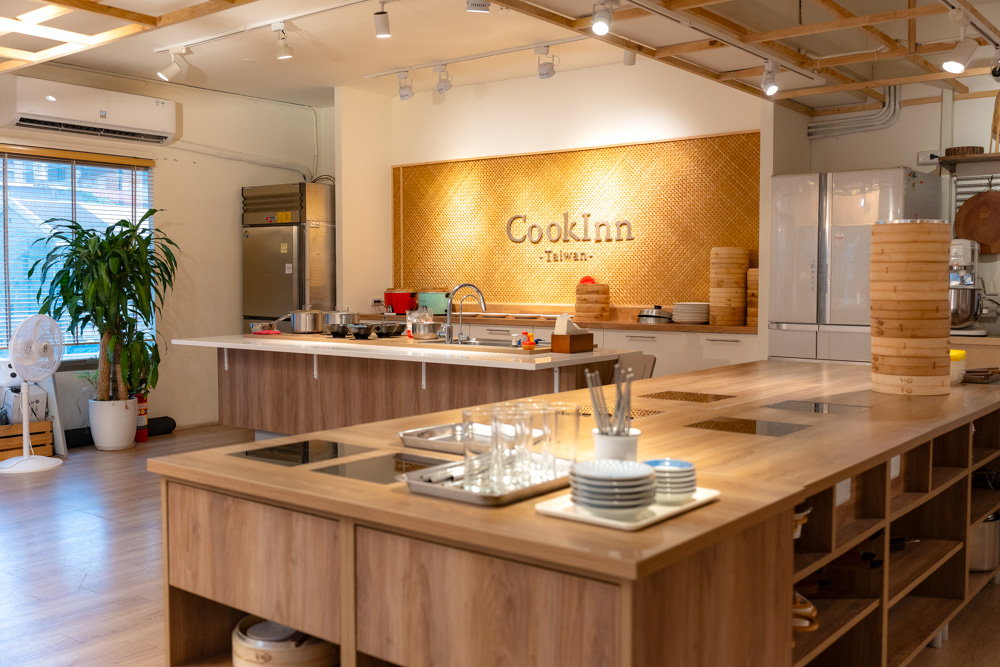
Tsai recalls her mother returning home every day after working long hours and immediately heading to the kitchen, whipping up a full meal within half an hour. As a child, she loved watching her mother cook, and they would also visit traditional markets together. But like most Taiwanese growing up in the 1980s and ’90s she never had much opportunity to make food herself, as she was told to focus on her studies.
Even after she left home, she did not get into cooking during her time in college and after she started working. The interest was still there, however, and it grew ever stronger. Ultimately, Tsai decided to quit her marketing job at a tech firm and enrolled in a culinary certification program, later heading to Tokyo to study at Le Cordon Bleu.
She originally hoped to open a restaurant, but after working at several high-end eateries, she felt this wasn’t suitable for her. While contemplating her next step, she volunteered to teach children on Jamie Oliver’s Food Revolution Day in 2015.
“I had a lot of fun, and I found that I was quite adept at it,” Tsai says. “I realized that teaching is very similar to marketing – you take something complicated and turn it into simple concepts for your students. From that point, I dove into the world of culinary education.”
Tsai first worked with teenagers and new parents who had little cooking experience, making Taiwanese home-style foods as well as pasta and other everyday dishes. One day, the school she was collaborating with accepted a gig to show international students at National Taiwan University of Technology how to create classic Taiwanese treats.
“I taught them how to make boba tea and oyster omelets starting from cassava powder, and shared some stories about Taiwan’s past,” she says. “It was fun and well-received. We Taiwanese always say that we’re very proud of our cuisine, but we don’t have a lot of chances to really discuss it in detail with visitors – we just tell them to go to a night market or visit Din Tai Fung (a well-known dumpling restaurant).”
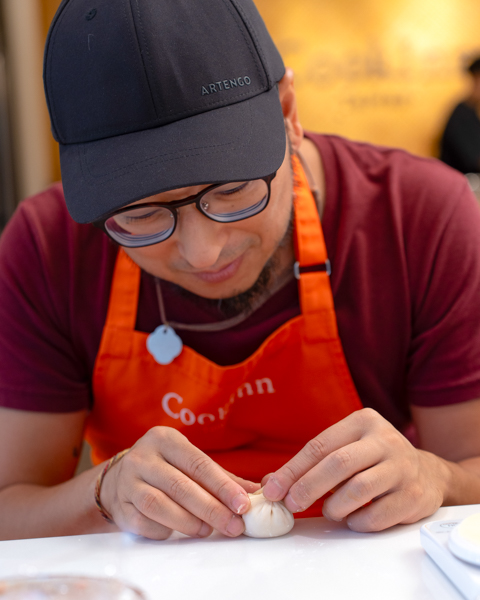
However, Tsai didn’t think about turning this talent into a full-time business until she went on a five-day trip to Seoul, with the only experience she remembered clearly being a cooking class. In 2018, she launched her school. Absorbing knowledge and skills from a triumvirate of retired master chefs, her mother, and other older relatives, Tsai tweaked and modified every culinary selection until it was suitable for the classroom.
It’s difficult for Taiwanese to even pin down a singular definition of their cuisine due to the island’s complicated history and the diverse array of people that have settled here. The indigenous people had long practiced their foodways when the Hoklo and Hakka brought their cuisines from southern China starting from the 1600s, Japan left its mark when it colonized Taiwan for 50 years starting in 1895, refugees from across China brought their specialities after the Chinese Civil War ended in 1949, and the US brought products such as flour and milk through its post-war aid programs.
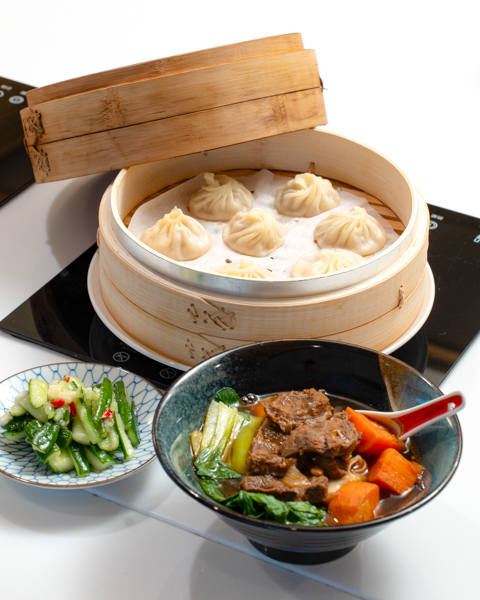
Tsai points to a photo of plentiful ingredients simmering in a spicy hot pot in her English cookbook, Taste Taiwan: Recipes from Taiwanese Home Kitchens, as what she sees as a microcosm of local cuisine. “This hot pot, you can put anything in it and they can coexist very well,” she says. “It’s not a melting pot, the ingredients influence each other but still retain their own flavor and appearance. This reflects our culture of acceptance and openness – we don’t have to intentionally pigeonhole the cuisine into something it’s not.”
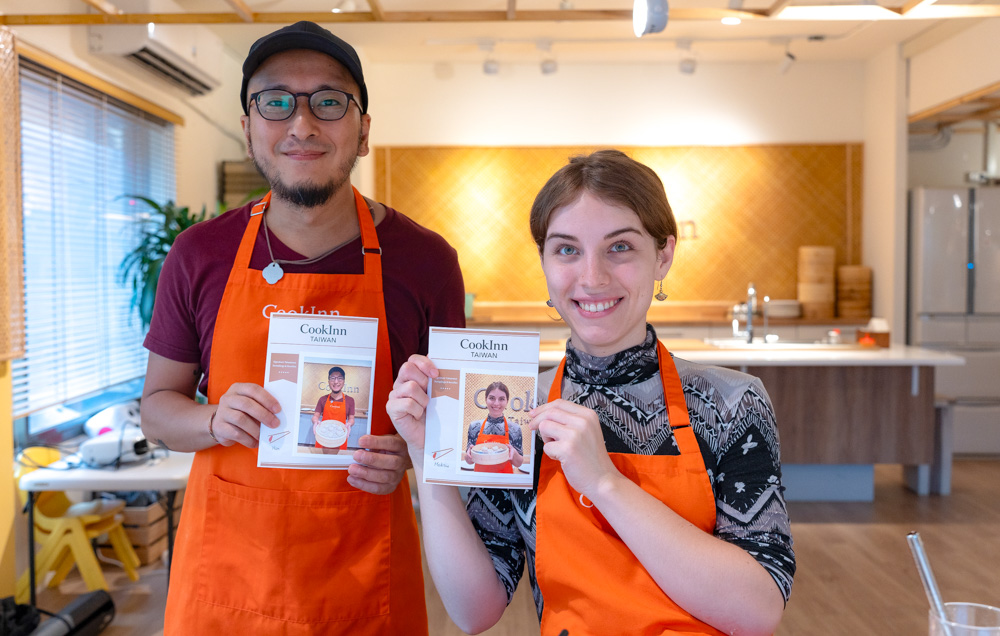
CookInn Taiwan
Add: 2F, No. 66, Sec. 1, Chengde Rd., Datong Dist., Taipei City
(台北市大同區承德路一段66號2樓)
Tel: (02) 2517-1819
Website: cookinn.tw
About the author

Han Cheung
Han Cheung moved back to his adolescent stomping grounds of Taiwan in 2015 from frigid Wyoming, where he was the editor of the small town Rawlins Daily Times. He has a Master’s in Journalism from the University of Missouri and has reporting experience in the US, Latin America, and Taiwan.




